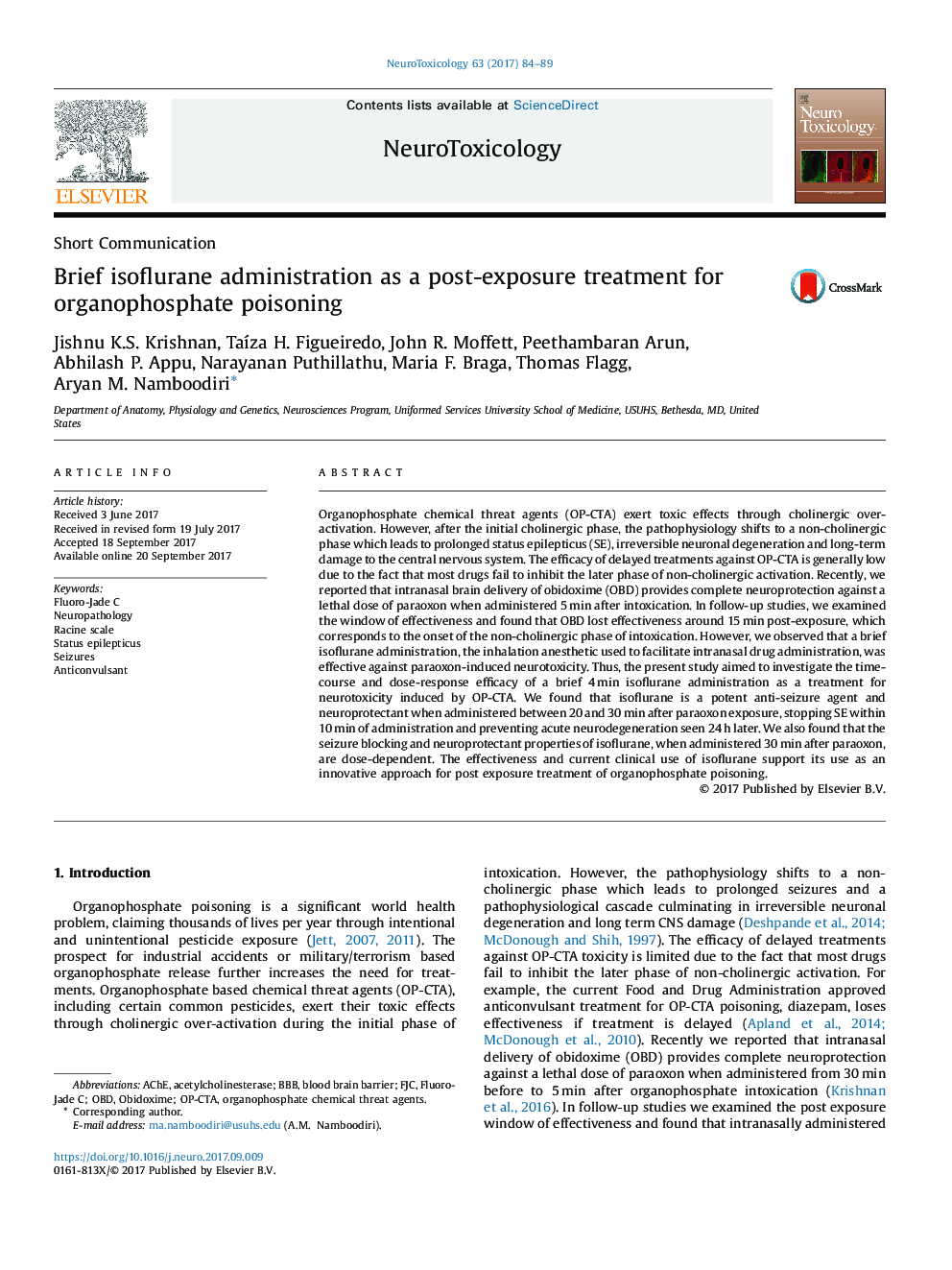| Article ID | Journal | Published Year | Pages | File Type |
|---|---|---|---|---|
| 5560767 | NeuroToxicology | 2017 | 6 Pages |
â¢Organophosphate poisoning (OP) leads to uncontrolled seizures and CNS damage.â¢A 4 min isoflurane treatment given 20 to 30 min post OP blocked seizure activity.â¢The brief isoflurane treatment reduced mortality from 37% to zero.â¢Isoflurane administered 30 min after paraoxon also prevented neurodegeneration.â¢Brief isoflurane administration is an effective post-exposure treatment for OP.
Organophosphate chemical threat agents (OP-CTA) exert toxic effects through cholinergic over-activation. However, after the initial cholinergic phase, the pathophysiology shifts to a non-cholinergic phase which leads to prolonged status epilepticus (SE), irreversible neuronal degeneration and long-term damage to the central nervous system. The efficacy of delayed treatments against OP-CTA is generally low due to the fact that most drugs fail to inhibit the later phase of non-cholinergic activation. Recently, we reported that intranasal brain delivery of obidoxime (OBD) provides complete neuroprotection against a lethal dose of paraoxon when administered 5Â min after intoxication. In follow-up studies, we examined the window of effectiveness and found that OBD lost effectiveness around 15Â min post-exposure, which corresponds to the onset of the non-cholinergic phase of intoxication. However, we observed that a brief isoflurane administration, the inhalation anesthetic used to facilitate intranasal drug administration, was effective against paraoxon-induced neurotoxicity. Thus, the present study aimed to investigate the time-course and dose-response efficacy of a brief 4Â min isoflurane administration as a treatment for neurotoxicity induced by OP-CTA. We found that isoflurane is a potent anti-seizure agent and neuroprotectant when administered between 20 and 30Â min after paraoxon exposure, stopping SE within 10Â min of administration and preventing acute neurodegeneration seen 24Â h later. We also found that the seizure blocking and neuroprotectant properties of isoflurane, when administered 30Â min after paraoxon, are dose-dependent. The effectiveness and current clinical use of isoflurane support its use as an innovative approach for post exposure treatment of organophosphate poisoning.
